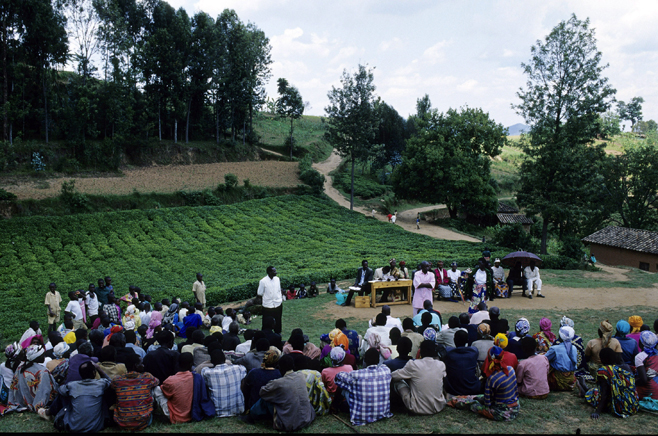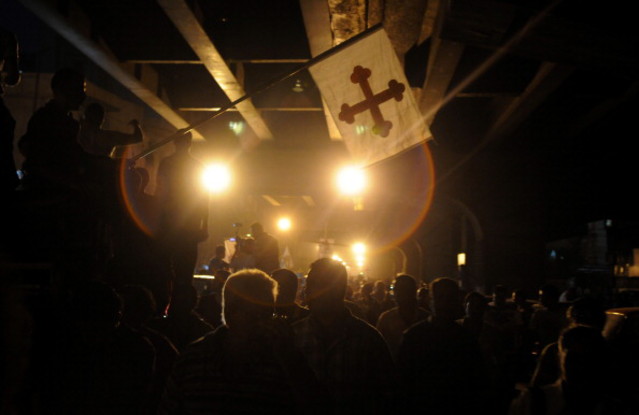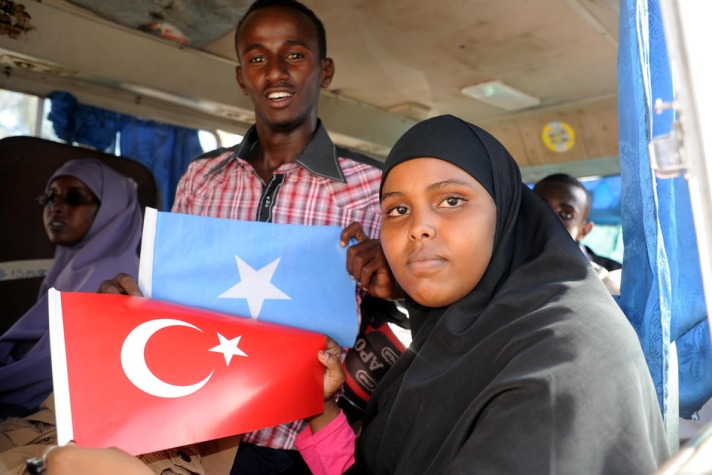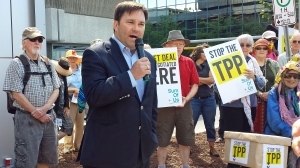Justice for the Victims
On November 8, 1994, the UN Security Council passed Resolution 955, establishing the International Criminal Tribunal for Rwanda. The goal of the Tribunal was to prosecute Rwandan citizens who had violated international humanitarian law between January 1 and December 31, 1994. Located in Arusha, Tanzania, the court had a broad jurisdiction, allowing for individuals to be charged with and prosecuted for genocide, crimes against humanity, and any act in violation of Article 3 of the Geneva Convention of 1949, which pertains to the humane treatment of prisoners of war.
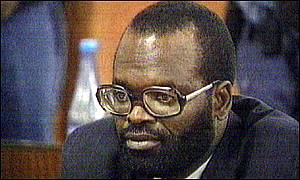
Between 1994 and 2012, 93 individuals were indicted by the court and 75 cases were completed over the course of nearly two decades, resulting in 61 sentences being handed down. The ICTR has been particularly successful in detaining and prosecuting high-level government and military officials, many of whom were integral to the planning and execution of the genocide, such as Prime Minister Jean Kambanda who assumed office at the start of the genocide and was sentenced to life imprisonment by the ICTR. Furthermore, prominent members of the media were also tried for their involvement in inciting violence against Tutsis during the genocide.
Unlike the International Criminal Court (ICC), the ICTR was established as an ad hoc tribunal with a limited mandate that has come to an end. The last trial judgement was delivered in December, 2012, and the remaining work of the ICTR will be done solely by the Appeals Chamber, which as of April, 2014, is reviewing 5 cases on appeal. Although the mandate of the ICTR has concluded, in December, 2010, the Security Council voted to establish the Mechanism for International Criminal Tribunals (MICT), which will continue the work of the ICTR. The MICT, which began in 2012 and has a 4-year renewable mandate, is tasked with continuing to track and prosecute the remaining fugitives indicted by the ICTR but not yet captured, and will also deal with further appeals and retrials of cases tried by the ICTR. Despite some criticism from both domestic and international commentators with regards to the effectiveness and efficiency of the ICTR, the Tribunal was significant as it not only delivered justice for crimes against the people of Rwanda, but also delivered justice to the international community by punishing individuals who committed serious violations of international humanitarian law.
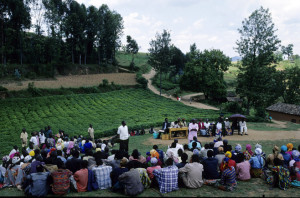
Apart from the ICTR, the Rwandan courts also pursued convictions for perpetrators of the genocide, trying over 200,000 individuals connected to the violence. Furthermore, local village courts called ‘gacacas’ presided over roughly 1.2 million additional cases that the national courts neither had the time nor the resources to consider. The gacaca courts were effective in helping to clear the backlog of cases before the national courts and provide justice to victims through a community-based reconciliation approach, however the gacacas were controversial, as they did not meet international legal standards, defendants did not have proper access to legal council, and sentencing was often overly draconian or overly lenient. Overall, Rwanda’s approach to retributive justice in the wake of the genocide had both good and bad elements, but looking back after twenty years, the country has certainly made significant progress in reconciling the victims and the perpetrators and providing justice for crimes the committed.
Reflecting Back and Looking Forward
The wounds of the genocide are still felt in present-day Rwanda, however the state has done an impressive job in rebuilding itself after near total devastation. Paul Kagame, the leader of the Rwandan Patriotic Front (RPF) during the genocide who has been President of Rwanda since 2000, has in his tenure focused heavily on creating a government free of corruption and a society that is lawful and orderly. Despite a few economic barriers, mainly the lack of skilled labour, high taxes, and poor infrastructure, Kagame’s reforms have made it easy to do business in Rwanda, which has attracted many foreign investors and corporations. As a result, the economy is growing at a rate of over 8% per year, and the Rwandan people are personally benefitting from the country’s success, as both life expectancy and the average income have doubled in the past two decades.
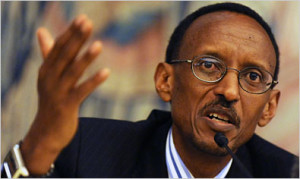
In spite of this impressive growth, Rwanda still faces an array of challenges stemming from social, political, and economic problems. In pursuit of a unified and orderly Rwanda, Kagame has been criticized for harassing journalists, suppressing – and even orchestrating the detention and assassination of – political opponents, and restricting freedom of speech. Economically, despite a reduction in poverty over the past decade, 50% of the population remains impoverished and the economy is heavily reliant on subsistence farming and traditional agricultural exports such as coffee and tea. Finally, though Kigali constantly denies supporting the Congolese militia group M23 in the Congolese civil war, the international community has accused Rwanda of providing military assistance to M23.
Rwanda today continues to face a variety challenges, but these issues are undoubtedly much more manageable than the problems of the past. Since the genocide, Rwanda has managed to not only rebuild its crumbled political institutions and repair its shredded social fabric, but the continued growth and success of the Rwandan economy since 1994 has bolstered the state’s coffers and increased individual wealth. As such, the social, political, and economic scars left by the genocide have greatly healed in the past two decades. While Rwanda will always be conscious of its conflicted past, there is much to be optimistic about when it comes to the country’s future.

